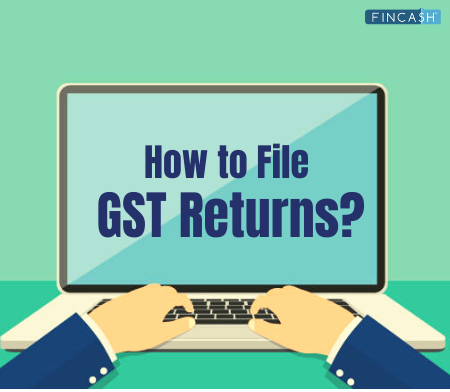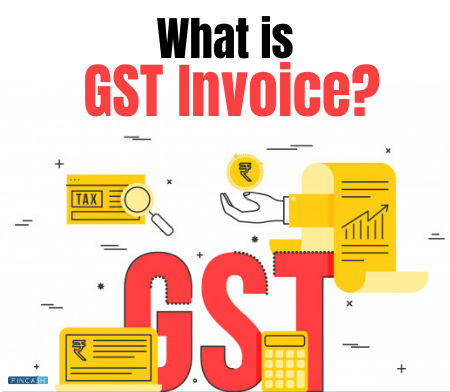Understanding GST on Sale of Old & Used Cars in India
The Goods and Services Tax (GST) system has significantly transformed India's taxation landscape, including the sale of cars.

Understanding the GST implications on the sale of old and used cars is crucial for both buyers and sellers. This article provides an in-depth analysis of the GST applicable to the sale of old and used cars in India, highlighting key aspects, exemptions, and practical considerations.
1. Introduction to GST on Old & Used Cars
Introduced in 2017, GST aimed to simplify India's tax structure by consolidating various indirect Taxes into a single tax system. While GST on new cars is straightforward, the taxation of old and used cars involves specific provisions that differ based on the nature of the transaction and the parties involved.
2. GST Rates on Sale of Old and Used Cars
The GST rate on the sale of old and used cars varies depending on the seller's GST registration status and the type of vehicle:
GST-Registered Dealers: For GST-registered dealers, the GST rate on the sale of used cars is 18%. This rate applies to the profit margin—the difference between the selling price and the purchase price of the used car. For example, if a dealer sells a used car for ₹4,00,000, having purchased it for ₹3,00,000, the GST payable would be 18% of ₹1,00,000 (the profit margin), amounting to ₹18,000.
Private Sales Between Individuals: In private sales between individuals, GST is not applicable. These transactions are considered personal sales and do not attract GST.
3. GST Calculation on Sale of Old Cars
For GST-registered dealers, the GST calculation is based on the profit margin:
- Purchase Price: ₹3,00,000
- Selling Price: ₹4,00,000
- Profit Margin: ₹1,00,000
- GST Payable: 18% of ₹1,00,000 = ₹18,000
Therefore, the total amount payable by the buyer would be ₹4,18,000.
Talk to our investment specialist
4. Input Tax Credit (ITC) on Sale of Old Cars
GST-registered dealers can claim Input Tax Credit (ITC) on the GST paid during the purchase of used cars. This credit can be Offset against the GST payable on the sale of the vehicle. However, ITC is available only if the dealer has a valid tax invoice for the purchase and the vehicle is purchased from a GST-registered seller.
5. Exemptions to GST on Used Car Sales
Certain exemptions apply to the GST on used car sales:
- Private Sales: Transactions between private individuals do not attract GST
- Sale to Scrap Dealers: The sale of a vehicle to a scrap dealer is exempt from GST, as it is considered a sale of goods for scrap.
6. Impact of GST on Buyers of Used Cars
For buyers, purchasing a used car from a GST-registered dealer means paying GST on the transaction amount. This GST is typically included in the final sale price. In private sales, no GST is applicable, and the sale price is considered the final price.
7. Advantages of GST on Used Car Sales
The implementation of GST has streamlined the taxation process, Offering several benefits:
- Transparency: GST eliminates multiple layers of taxation, ensuring clear and transparent pricing.
- No Double Taxation: Previously, used cars were subject to both VAT and other local taxes. With GST, a single Tax Rate simplifies the process.
- ITC for Dealers: Dealers can claim ITC on GST paid during the purchase of used cars, reducing the overall tax burden.
8. What Happens to GST When a Car is Sold to a Dealer vs. a Private Party?
Sale to GST-Registered Dealers: If you sell a car to a GST-registered dealer, they may charge GST on the transaction, and it will be included in the final selling price. The dealer can claim ITC on the purchase price and offer the car at a lower price.
Private Sale: In private sales, GST is not applicable, and no tax is levied on the transaction. This can be a crucial detail for individuals looking to buy or sell cars privately.
9. Impact of GST on Car Buyers in Different States
- State-Specific Impact: In some states, road tax, registration charges, and GST can make a significant difference in the overall cost of purchasing a used car. This section can highlight any variations.
Example: A buyer in Delhi may have to pay additional road tax, while a buyer in Maharashtra may experience different registration charges.
10. How to Calculate the Total Cost of a Used Car Transaction?
Costs Involved in Buying a Used Car:
- GST on Profit Margin (if purchased from a dealer): 18% of the profit margin
- Road Tax and Registration Fees
- Other charges: insurance, handling fees
Costs Involved in Selling a Used Car:
- GST on Profit Margin (if selling to a dealer)
- Any additional paperwork or charges
11. Is GST Applicable on Car Exchange Programs?
Many car buyers choose to exchange their old cars while purchasing a new or used one from a dealer. Understanding the GST on car exchange programs is important.
- GST on Exchange: GST is applicable on the transaction value of the car being exchanged. For example, if a used car is being exchanged for a new one, the value of the car being exchanged is considered part of the overall sale price, and GST will apply on the difference.
12. Understanding the Input Tax Credit (ITC) and Its Limitations
Eligibility for ITC: Dealers can claim ITC on the GST paid during the purchase of used cars, provided the cars are purchased from GST-registered sellers and a proper tax invoice is available.
Limitations on ITC: ITC cannot be claimed if the car is purchased from a non-GST registered individual or if the dealer is involved in selling the car at a loss.
13. How GST Impacts the Resale Value of Used Cars
Depreciation and GST: GST may impact the depreciation of used cars as GST-registered dealers may not pass the full tax burden on to the end buyer, potentially affecting the resale price of cars.
GST and Vehicle Condition: Cars in better condition or with lower mileage may be priced higher by dealers, thus affecting the GST charged based on the profit margin.
14. What Documentation is Required for GST on Sale of Used Cars?
For Dealers: A valid GST registration certificate, tax invoices, and proof of purchase from other GST-registered dealers. Documentation of the car’s condition and any repairs done may also be required.
For Private Sellers: No GST documentation is required for private sales. However, buyers must ensure that the transfer of ownership is properly recorded with the Regional Transport Office (RTO).
Conclusion
Understanding the GST implications on the sale of old and used cars is essential for both buyers and sellers. While GST-registered dealers are required to charge 18% GST on the profit margin, private sales between individuals are exempt from GST. Dealers benefit from ITC, which can offset the tax payable on sales. Staying informed about the latest GST regulations ensures a smooth transaction process.
All efforts have been made to ensure the information provided here is accurate. However, no guarantees are made regarding correctness of data. Please verify with scheme information document before making any investment.












